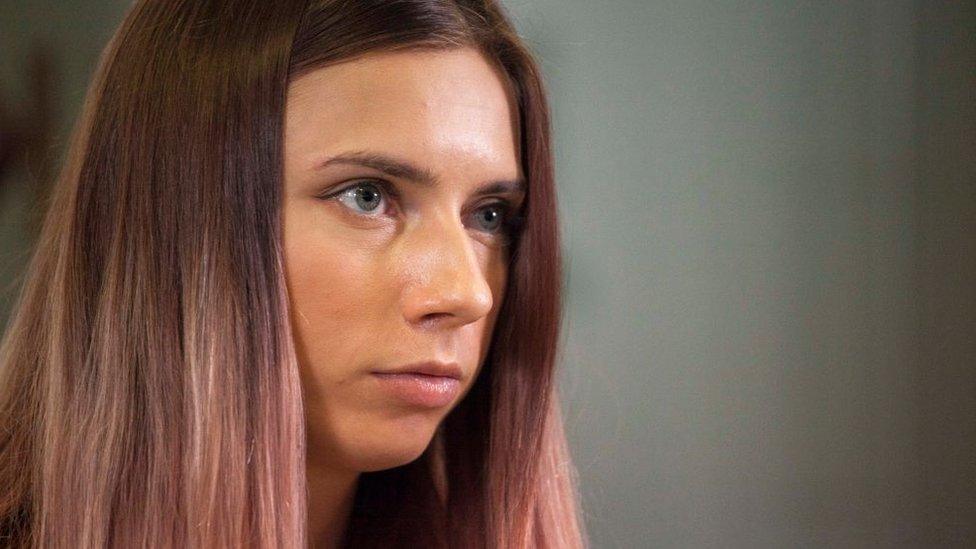Shishov case: Belarus leader Lukashenko denies link to dissident's death
- Published
Lukashenko: "You can choke on your sanctions... you are American lapdogs"
Belarus's president has denied claims that his security services were involved in the death of dissident Vitaly Shishov, who was found hanged in neighbouring Ukraine last week.
"Who was he for me and for Belarus? For us he was simply a nobody," President Alexander Lukashenko told reporters.
Vitaly Shishov was organising help for Belarusians who fled to Ukraine from Mr Lukashenko's post-election crackdown.
The UK and US are tightening sanctions on Belarus, hitting economic sectors.
They include potash and petroleum products - key sources of income for Mr Lukashenko's regime - as well as financial services and transport. He and his top aides are already under Western sanctions.
When asked by the BBC about the latest British measures he said: "You can go choke on your sanctions... You are American lapdogs!"
There were anti-Lukashenko rallies after the disputed vote a year ago. The weeks of mass protests were the biggest challenge yet to Mr Lukashenko's 27-year rule as president.
Last year police detained thousands of anti-Lukashenko protesters as they broke up the demonstrations, using batons and tear gas. The opposition says more than 600 political prisoners are still in jail.
Monday's news conference, televised live, was his first such appearance during the political crisis - an event officially named "the big conversation".
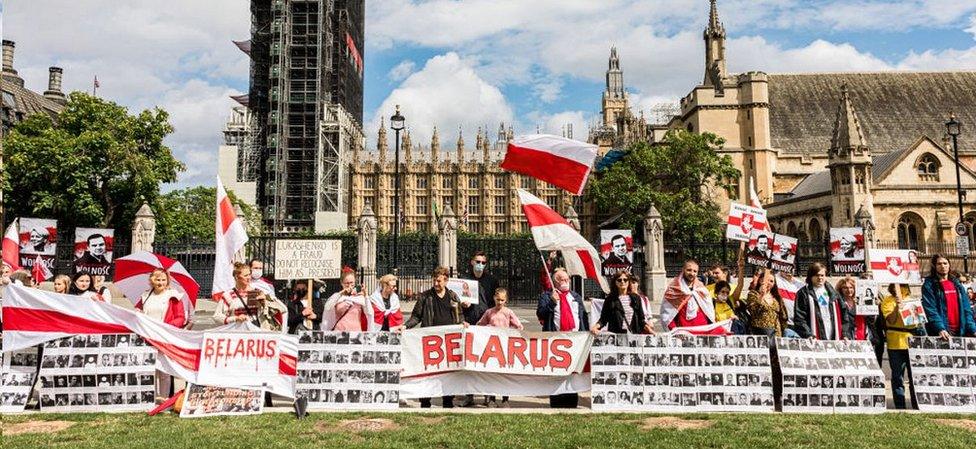
Belarus opposition activists demonstrated in London and other cities on Sunday
Support from Russian President Vladimir Putin has proven a lifeline for the embattled president. But Western governments, like the Belarusian opposition, denounced the vote as fraudulent and tightened sanctions.
Belarusian opposition leaders are either in jail or were forced into exile. Svetlana Tikhanovskaya, who claimed victory in the election, is based in Lithuania.
Ukrainian police probing Shishov's death are investigating whether it was suicide or a murder made to look like suicide. He was found hanged in a park near his home in the capital Kyiv.
Colleagues in his organisation, Belarusian Home in Ukraine, suspect that Lukashenko agents were involved, and say Shishov had been under surveillance.
His partner Bazhena Zholudzh told the BBC: "Lukashenko won't be here forever, and this will all be over and they will have to answer for what they have done."
The case of Belarusian Olympic sprinter Krystina Timanovskaya also grabbed world attention last week. She flew to Poland - not home to Belarus - after a row with Belarusian team coaches.
Mr Lukashenko mocked her, saying "she took 36th place in her discipline - say no more!" "Why did we include her? The IOC [International Olympic Committee] recommended her!"
In Tokyo she said there was an attempt to force her onto a flight back to Belarus - a claim denied by Mr Lukashenko, who said there was "not a single" KGB agent at the Olympics.
Looking back to the election, Mr Lukashenko said: "This was not an easy year for us", adding that Belarus had "passed a serious test of national unity".
He said that last year "some were preparing for fair and honest elections, while others were calling for a coup".
Before the latest Western sanctions were announced he warned that he could withdraw co-operation on preventing the smuggling of radioactive materials. "This is the issue of issues for the Americans... but I have warned them - if you cross the red line too far, we'll stop talking to them on this subject."
In 2020 a BBC team filmed riot police attacking and forcibly arresting university students in Minsk
Related topics
- Published7 August 2021
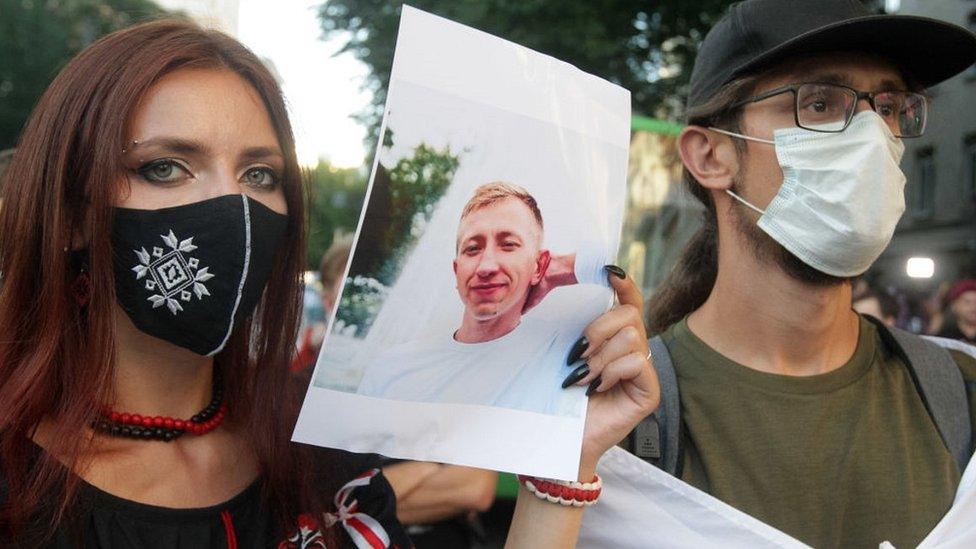
- Published3 August 2021
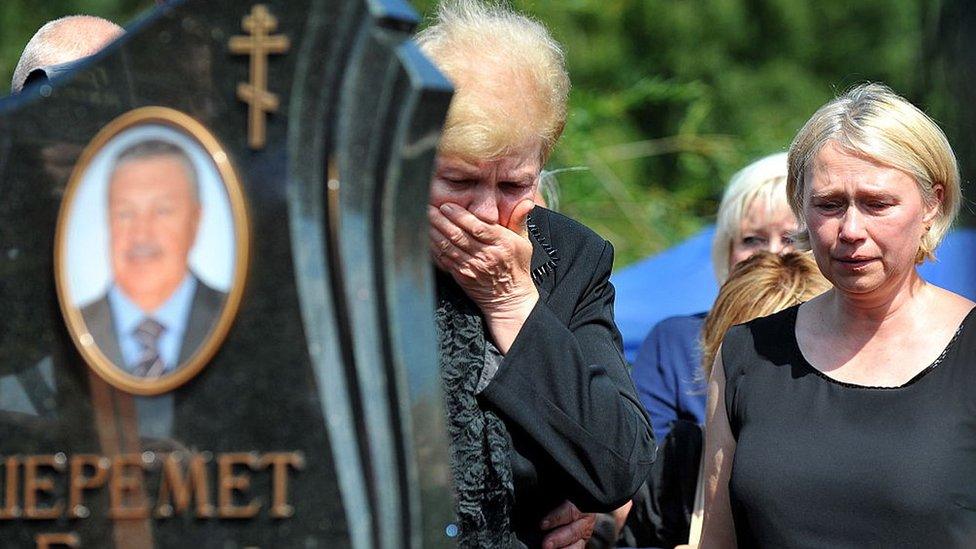
- Published6 August 2021
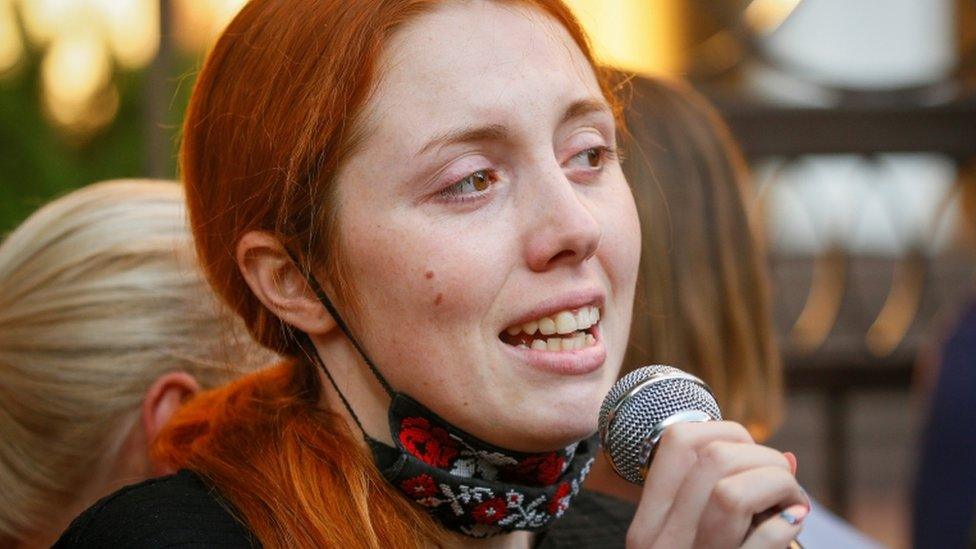
- Published11 September 2020
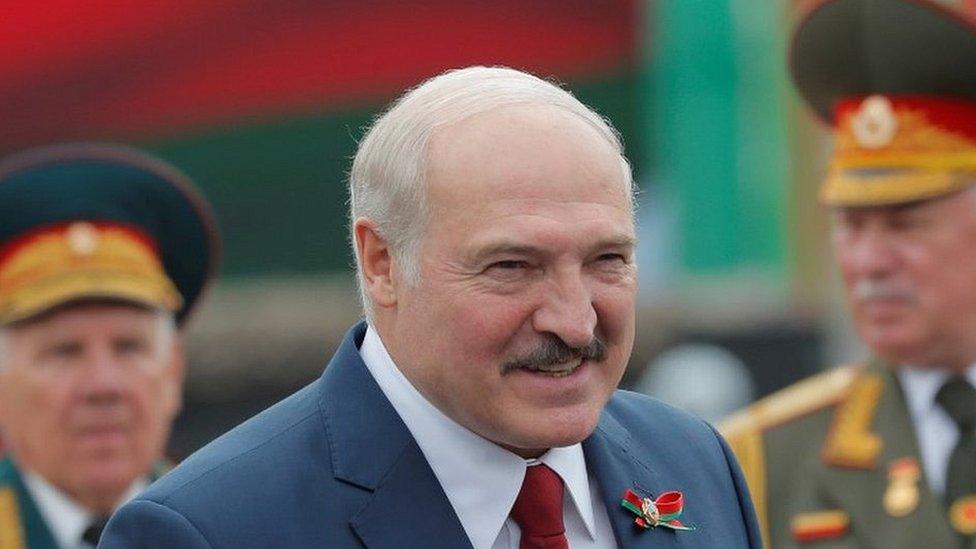
- Published6 August 2021
